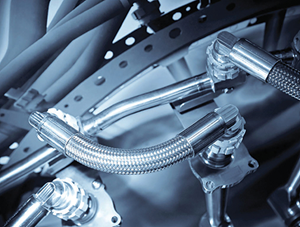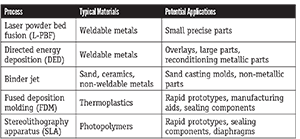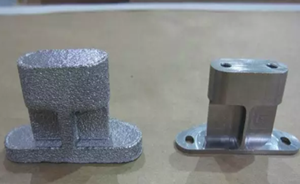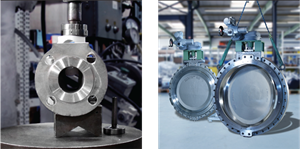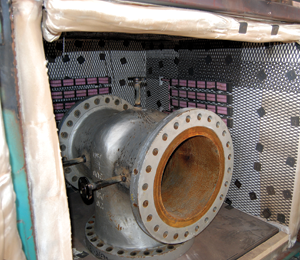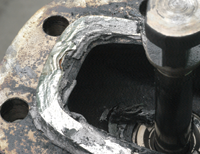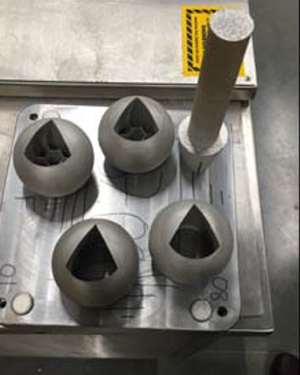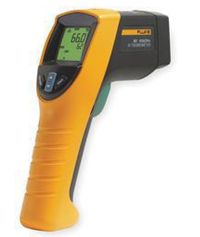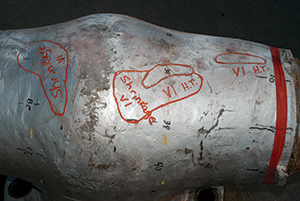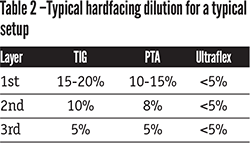Valves in Space
All of these valves need to be built to precise fits and finishes and to stringent performance requirements because “On a spacecraft, everything has got to work. If it breaks, you’re done.”
#materials #standards
3D Printing Materials
Q: 3D printing and additive manufacturing have become buzz words in various industries, but what do they mean in the context of valves, and what materials are involved?
#materials
Material Q&A: Elastomer and Plastic Materials
Question: What is the difference between plastic and elastomer?
#materials
Hardfacing for Valves: Materials and Processes
Valve internals, such as seats and closures, are often at risk of erosion, abrasion, corrosion, galling and damage from cavitation.
#materials
Conval: Camseal Metal-Seated Ball Valves Feature New Stem Position Indicator Disc
Conval recently announced that its popular Camseal© metal-seated, forged ball valves feature a new Stem Position Indicator Disc for easy, precise on-site identification and inspection of the open-close status of the valve.
#materials #ball-butterfly-plug
Creep Strength Enhanced Ferritic Materials in Thermal Power Applications
The designers of modern thermal power plants continue to work hard to improve plant efficiency by increasing the heat rate as a function of main-steam pressure and temperature.
#pressure-relief #materials
Understanding Surface Finish in Metal 3D Printing of Valves
While metal AM provides a host of positive advantages, it’s important to understand the realities of as-printed surface roughness.
#materials #basics
The Challenges of Chlor-Alkali
With the introduction of new materials and the evolution of valve design over the years, the days when fluid handling operators were limited by the number of valve types available to control the process are long gone.
#materials
The Magic Behind the Metal
Like the superhero that can leap tall buildings, the valve industry is made of steel.
#basics #materials
Gaskets Are Not Created Equal
Gaskets are near the bottom of the food chain of valve components; trim, body materials and packing seem to get a lot more press.
#materials #components #maintenance-repair
Metal Additive Manufacturing in the Valve Industry
Metal Additive Manufacturing (AM) is a fascinating technology that has gained acceptance over the past several years.
#materials #automation
Interior Coatings for Waterworks Valves
Since the 1990s, two types of epoxy coatings have been commonly specified and used for iron valves in the waterworks industry: fusion-bonded epoxy and liquid epoxy.
#materials
Passivation and Pickling
Q: I have customers that ask for their stainless-steel valves to be pickled and I have others who ask for them to be passivated.
#materials
Thermal Spray Coating
Q: What are the pros and cons of using a thermal spray coating like HVOF?
#materials
Magnetic Particle Examination: Not the Only Way to Test for Flaws
Magnetic Particle Examination (MT) is a popular, relatively low-cost method to perform nondestructive examination on ferromagnetic materials.
#materials
The New Version of NACE MR0103
Q: How do the requirements in this International Organization for Standards (ISO) document differ from those in the previous version?
#standards #materials
Portable Alloy Verification Devices
Q: What are the differences between the results you get from a portable alloy verification device and the results you see on a supplier’s certified materials test report (CMTR)?
#materials
Cast vs. Forged: The Ongoing Debate Takes a New Direction
In the valve industry, the cast versus forged debate has been around for many years.
#materials #standards
Hardfacing Alloys and Processes for Advanced Ultra-Supercritical
Cobalt-based Stellite 6 has been the workhorse for providing improved wear resistance and service life in valve components installed in power generating facilities for over 75 years.
#maintenance-repair #components #materials
The ASME Code Process for a Code Case: Non-Traditional Manufacturing Methods/Materials
What are ASME Code Cases and how do I get one?
#standards #materials




